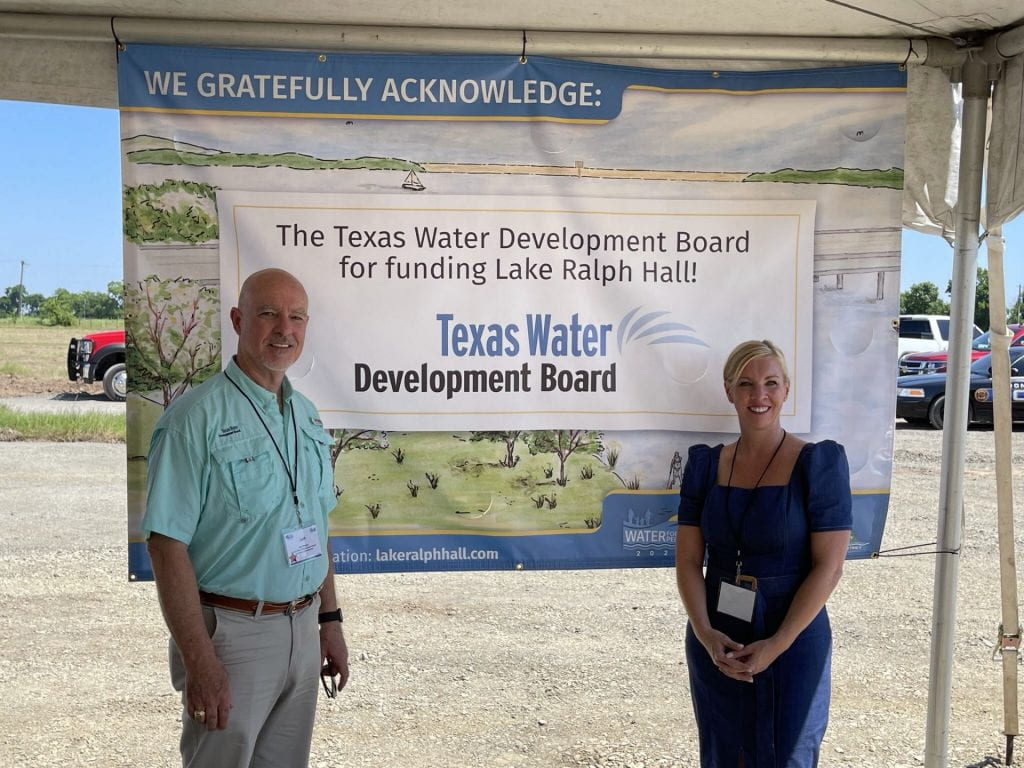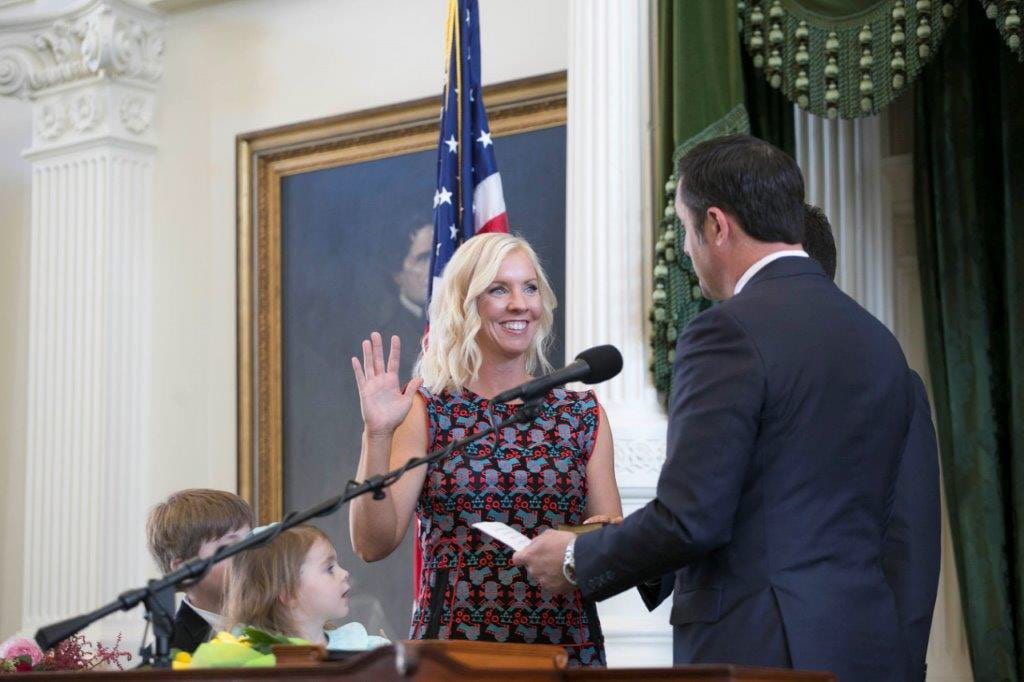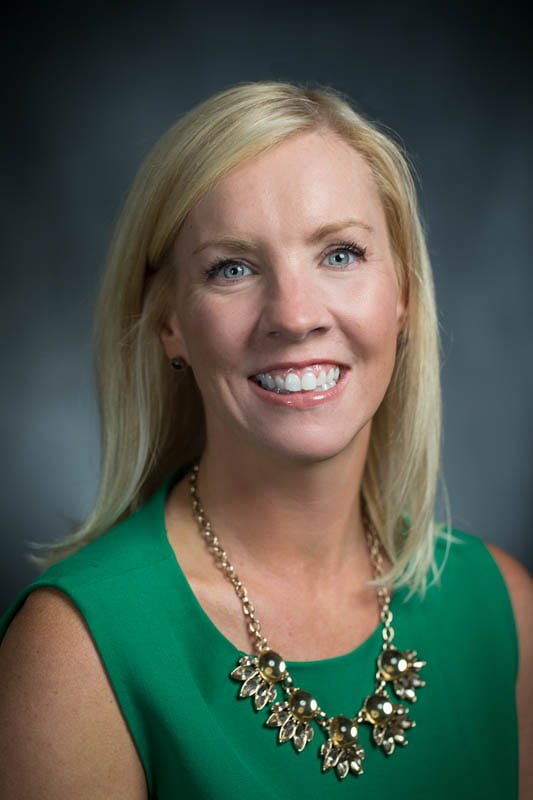Chairwoman of the Texas Water Development Board
In this issue’s Q&A, Texas+Water Editor-in-Chief, Dr. Todd Votteler, interviews Brooke Paup, Chairwoman of the Texas Water Development Board.
Paup has served as a Board Member of the TWDB since February 22, 2018. Governor Greg Abbott designated her as Chairwoman on April 22, 2021. Prior to her appointment to the TWDB, Paup served as the Director of Legislative Affairs for the Texas Comptroller of Public Accounts.
She was formerly the Deputy Division Chief of Intergovernmental Relations and the Special Assistant for Policy and Research for the Office of the Attorney General, where she dealt with the legislation in the 83rd Legislative Session that created the State Water Implementation Fund for Texas (SWIFT) and the State Water Implementation Revenue Fund for Texas (SWIRFT).
Paup has a Bachelor of Arts from Texas A&M University and a Juris Doctor from Texas Tech School of Law.
What are your priorities as Chairwoman of the TWDB?
Keeping our financial assistance programs healthy is my main priority, and it requires active management by the TWDB. We made some difficult decisions last year with respect to subsidies for our SWIFT and State Revolving Fund programs, but I believe those changes will serve us well as we navigate the economic recovery and an uncertain interest rate environment. Our financial assistance programs are now better positioned to remain viable for years to come. I take my role as steward of taxpayer dollars very seriously and am dedicated to ensuring that Texans get the best bang for their buck when it comes to financing water infrastructure.
Additionally, cybersecurity and protecting Texas water infrastructure are top-of-mind topics. I am currently partnering with our fellow state agency, the Department of Information Resources, to identify best practices in cybersecurity for our water operators and determining how best to build bridges across various agencies. Stay tuned for more.
Finally, ensuring the state and our agency are well informed of the universe of litigation impacting our water world is a priority. I am the lawyer on the Board, and it’s my duty to ensure the state’s interests are protected and our policies reflect that need.
What are you looking forward to most in this new position?
I am genuinely looking forward to resuming my travels across the state and checking in on some of the incredible infrastructure projects the TWDB has had the privilege to fund. Texas is blessed with many brilliant water minds, and I have really missed the candid conversations about where our state is headed. Getting back out on the road again and hearing those perspectives is going to be re-energizing.
 Brook Paup and Jeff Walker, Executive Administrator of the Texas Water Development Board, at the the ground breaking of Lake Ralph Hall on June 16, 2021.
Brook Paup and Jeff Walker, Executive Administrator of the Texas Water Development Board, at the the ground breaking of Lake Ralph Hall on June 16, 2021.
What previous experience has been the most beneficial to you in your new role as TWDB Chairwoman?
My previous experience working in government relations under Greg Abbott at the Office of the Attorney General and Glenn Hegar at the Comptroller’s Office was incredibly helpful. Seeing what effective leadership looks like and working alongside other highly intelligent and professional public servants was truly a privilege. Both of those positions demanded that I learn quickly and think on my feet, which has served me well in my current position. Crafting solutions to accommodate diverse stakeholders and thinking outside the box was the name of the game.
Since you were appointed as a Board Member in February 2018 by Governor Abbott, what do you think have been the most important TWDB accomplishment(s)?
The Flood Infrastructure Fund (FIF) project interactive dashboard provides information on the number of projects that have been approved to receive funding by the TWDB. Two of our most recent notable accomplishments include launching the Flood Infrastructure Fund and the regional flood planning process during a global pandemic in our new work-from-home reality. We have already committed more than $300 million in grants and low-interest loans through the Flood Infrastructure Fund, in addition to holding over 120 planning group meetings.
Our SWIFT program reached an important milestone in 2019, with estimated cumulative savings to our borrowers passing the $1 billion mark. We executed our first virtual SWIFT bond sale in 2020, and the agency was able to secure an all-time-low true interest cost of 2.57 percent.
While those programs have (rightfully) garnered a lot of attention in recent years, our State Revolving Fund (SRF) programs continue chugging along in the background, the unsung heroes of the TWDB. As an example, our Clean Water SRF provided $1.17 billion in low-interest loans in the last 15 months alone.
 Brooke Paup taking the oath of office as Chairwoman of the TWDB in 2018 at the Texas Capitol.
Brooke Paup taking the oath of office as Chairwoman of the TWDB in 2018 at the Texas Capitol.
It seems like most Texans already know that water is often scarce in our state. What is the key to harnessing that sentiment and focusing it on the areas that TWDB is working to address such as the development of future water supplies, water conservation, and preparing for future droughts and floods?
I often tell people that while government is inherently reactive, it can sometimes produce some proactive solutions that will benefit future generations. The driest year on record for Texas was 2011, but that crisis provided the impetus for the creation of SWIFT to fund state water plan projects. Similarly, the devastation of Hurricane Harvey in 2017 brought about the Flood Infrastructure Fund two years later to fund flood mitigation projects. These crises, while terrible and destructive, served as powerful focusing events that brought the policy issues of long-term water supply planning and flood mitigation to the fore. History has shown that Texas alternates between drought and flood, but my hope is that through ongoing partnerships, planning, and communication, communities will grow more and more resilient following each event.
What do you consider to be the biggest challenge facing Texas over the next 20 years regarding water?
Accommodating rapid population growth to meet water needs is always top of mind. Ensuring that businesses still want to relocate to Texas or expand current operations is absolutely necessary to preserving the Texas Miracle. It’s going to take an all-of-the-above approach: developing new supplies, promoting long-term conservation, and thinking carefully about temporary drought management measures that will not result in economic harm.

